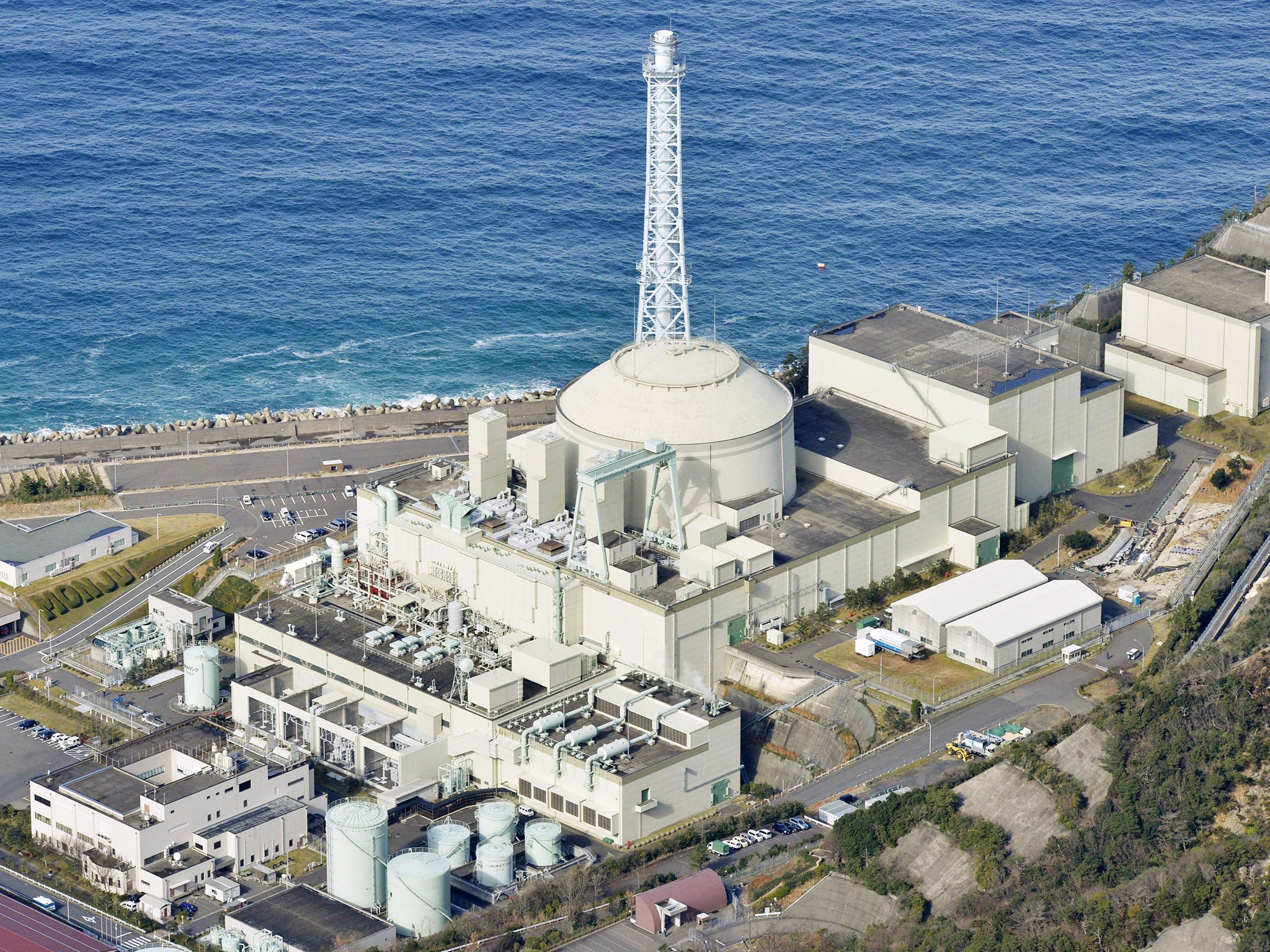Japan scraps nuclear reactor that cost £7 billion after just 250 days' operation
'Dream reactor' needs costly upgrades to meet post-Fukushima standards, but officials say it's not worth it

Your support helps us to tell the story
From reproductive rights to climate change to Big Tech, The Independent is on the ground when the story is developing. Whether it's investigating the financials of Elon Musk's pro-Trump PAC or producing our latest documentary, 'The A Word', which shines a light on the American women fighting for reproductive rights, we know how important it is to parse out the facts from the messaging.
At such a critical moment in US history, we need reporters on the ground. Your donation allows us to keep sending journalists to speak to both sides of the story.
The Independent is trusted by Americans across the entire political spectrum. And unlike many other quality news outlets, we choose not to lock Americans out of our reporting and analysis with paywalls. We believe quality journalism should be available to everyone, paid for by those who can afford it.
Your support makes all the difference.Japan has decided to scrap an experimental nuclear reactor that cost the equivalent of nearly £7 billion over 22 years - even though it was only operational for 250 days.
Government ministers decided to decommission the trouble-plagued “Monju” fast-breeder reactor that had drained government finances for decades without living up to hopes it would be a saviour for the resource-poor nation's energy needs.
The so-called “dream reactor” was designed to burn a plutonium-uranium mix, while potentially producing more plutonium in the process that could be converted into more nuclear fuel. It cost some £6.89 billion over its lifetime.
The reactor suffered a leakage of sodium, used as coolant, in 1995, months after it went online, a major accident that caused its initial years-long suspension before more recent safety problems.
It was estimated that Monju would have required costly upgrades to meet new safety standards introduced after meltdowns at a nuclear plant in Fukushima that was flooded by a tsunami in 2011, with at least another £3.7 billion and eight more years of work estimated to restart Monju, officials said, citing their latest estimates.
“We have decided to decommission Monju because restarting it would require significant time and cost,” chief cabinet secretary Yoshihide Suga said from Fukui, home to Monju in western Japan. Local officials oppose losing Monju, which rakes in subsidies and provides jobs.
Officials, however, said Japan's spent fuel recycling plan would not change even without Monju. Opponents say Japan should give up the program and shift to direct burial of spent fuel as waste, but officials are seeking another fast reactor to replace Monju, although details are still unclear.
AP
Join our commenting forum
Join thought-provoking conversations, follow other Independent readers and see their replies
Comments